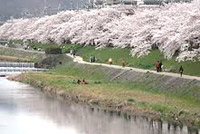Singapore & Japan Lead Asia In Adopting Elderly-Friendly Work Practices
 Many employers in Asia still prefer to recruit younger workers, discriminating against older job-seekers whom they feel cost more but are less productive. Such attitudes were surfaced in a recent study conducted by the Diversity and Inclusion in Asia Network (DIAN), set up by Community Business - a Hong Kong based non-profit organisation that advises companies on work-related issues. Many employers in Asia still prefer to recruit younger workers, discriminating against older job-seekers whom they feel cost more but are less productive. Such attitudes were surfaced in a recent study conducted by the Diversity and Inclusion in Asia Network (DIAN), set up by Community Business - a Hong Kong based non-profit organisation that advises companies on work-related issues.
However, Singapore and Japan were deemed ahead of the pack when it comes to adopting age-friendly employment practices. Both countries are having populations that are amongst those most rapidly ageing in Asia. The study revealed that both Singapore and Japan are the most proactive in taking steps to encourage employers to retain workers beyond the retirement age.
Community Business's Head of Research and Marketing, Ms Kate Vernon, cited that Singapore recognises that it needs to keep older workers in the labour force longer to ensure economic success. The Singapore Government pursued to enhance the employability of older workers - for example, by issuing tripartite guidelines on the re-employment of older workers. The official retirement age for Singapore workers will be raised by 3 years to 65 in year 2012. Labour Member of Parliament and co-chairman of the Tripartite Alliance for Fair Employment Practices in Singapore, Halimah Yacob, highlighted while addressing the issue of a rapidly ageing workforce, that "Singapore is well-placed to ride the silver tsunami and tap on older employees", and that employers here agreed that they can no longer ignore the growing silver brigade of workers.
The study also made several suggestions on how companies can create an inclusive workplace for older workers. For example, by promoting an age-friendly culture, redesigning jobs to suit seniors and providing work schedules that are more accommodating to older employees. "We need to start initiatives now that will mature and become embedded in an organisation's culture in the future," said Ms Julia Wolage, DIAN member and vice-president and head of human resources at American Express in Singapore.
Japan is one of the world's leaders in terms of an ageing population, where the number of older workers is well ahead of other countries. In 2008, recognising that Japan's social and economic dynamism is under conditions of demographic decline, the Government announced its "New Employment Strategy", subtitled "Creating A Society In Which Everyone Plays A Part." This designates the next 3 years as an "intensive period" of support for expanding employment of people in the following three categories: the young, women, and the old. The government's aim for the old was to pursue continued employment up to the age of 65. Prior to this, the Japanese retirement age was 60.
And being as innovative as the Japanese will always be, Shigeki Toyama - a professor at Tokyo Agriculture and Technology (TAT) University, developed a motorized exoskeleton designed to boost the wearer's strength by 62 per cent. The design was meant to be used as a Robo-suit that will help ageing Japanese Farmers pick up crops with ease. Certainly making good use of science ensuring that the older farmers remain employed.
|

 Many employers in Asia still prefer to recruit younger workers, discriminating against older job-seekers whom they feel cost more but are less productive. Such attitudes were surfaced in a recent study conducted by the Diversity and Inclusion in Asia Network (DIAN), set up by Community Business - a Hong Kong based non-profit organisation that advises companies on work-related issues.
Many employers in Asia still prefer to recruit younger workers, discriminating against older job-seekers whom they feel cost more but are less productive. Such attitudes were surfaced in a recent study conducted by the Diversity and Inclusion in Asia Network (DIAN), set up by Community Business - a Hong Kong based non-profit organisation that advises companies on work-related issues.
 During the first week of April, I was at
Kansai region in Japan. The weather there was wonderful, and I was able to see the beautiful cherry blossom flowers blooming everywhere.
During the first week of April, I was at
Kansai region in Japan. The weather there was wonderful, and I was able to see the beautiful cherry blossom flowers blooming everywhere.
